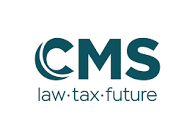Following an extensive consultation and publication of its final report in June 2023, the Law Commission has now published its draft Digital Assets Bill (the Bill).
The Bill is designed “to ensure that the law remains dynamic, highly competitive, and flexible, so that it can support transactions and other arrangements involving digital asset technology”. And it aims “to help to achieve the UK Government’s stated goal of the jurisdiction of England and Wales becoming a global hub for digital assets, and in particular, for crypto-tokens and crypto-token systems”.
The deadline for responses to the Law Commission’s consultation on the draft legislation is 22 March 2024.
Summary of key points
- The Bill builds on the Law Commission’s existing body of work on digital assets by proposing an express statutory provision to confirm the existence of a “third category” of personal property rights, capable of accommodating certain digital assets including crypto-tokens.
- The Bill proposes to achieve this through a simple statutory provision which confirms that a thing – including a thing that is digital or electronic in nature – is capable of being the object of personal property rights even though it is neither a thing in possession nor a thing in action (being the two traditional categories of personal property).
- The Law Commission considers that the draft Bill would definitively lay to rest any lingering doubt about the existence of a third category of property accommodating the unique nature of digital assets, setting the future direction of the law in favour of commercial certainty and confidence.
Comment
The Bill provides an opportunity to clearly recognise digital assets as a class of property under English law. Although it is interesting that the Law Commission does not propose to achieve this by seeking to define a new third category of personal property, instead preferring a broader and more flexible approach that leaves specificity to incremental common law development.
Our view is that it is currently difficult for law firms to give clean legal opinions to market participants (for example, issuers and financial institutions) in relation to tokenized securities. While there has been some recognition of digital assets as property by the English courts in relation to injunctions, such developments are, by their nature, piecemeal, specific to the circumstances of the particular case, and at risk of being overturned by subsequent judicial decisions. A clear and conclusive legal foundation has not yet been established, and competition from other jurisdictions is strong.
Consequently, English law governed issuances of tokenised securities are considered by some market participants to involve a degree of legal uncertainty. More issuances are taking place in other jurisdictions where the position of digital assets is perceived as being more certain (with several jurisdictions having passed legislation that caters for or addresses the adoption of blockchain technology and digital assets). This has been a cause of frustration for the UK market.
Implementation of the Bill and the Law Commission’s recommendations would codify the position already generally accepted by practitioners and academics but, more importantly, would put the matter beyond doubt.
The Bill is welcome news for the UK and its ambitions in the digital assets markets.
Mike Ringer is a partner in the Financial Services Group and co-lead of the Crypto and Digital Assets Group. Charles Kerrigan is a partner in the Finance Team and part of the specialist Crypto and Digital Assets Team. Fiona Henderson is a partner in the Banking Team. Article co-authored by Euan Reid, Trainee Solicitor at CMS.


















